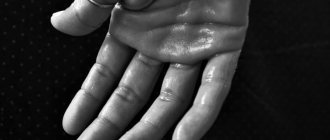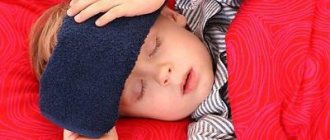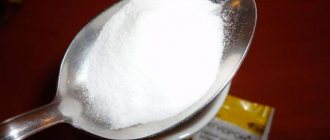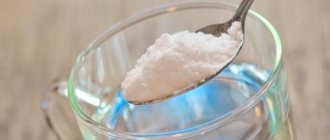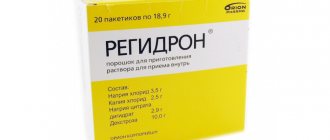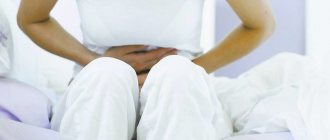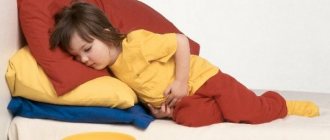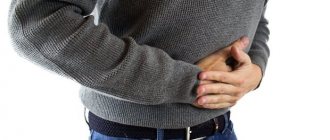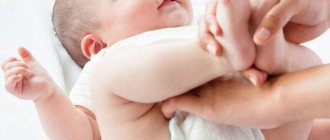Trying to survive the heat with a newborn, we are ready to move with him into the bathtub or better... straight into the refrigerator! Children are often capricious or sleep a lot, some don’t even want to breastfeed... Do you need to supplement your baby’s food and how can you prevent the baby from dehydrating in hot weather?
shutterstock
Breastfeeding in the summer is the best way to cope with the heat with your newborn. The main thing is not to panic when the baby reacts strangely to the breast, does not attack with greed, as usual. In any case: breast milk is the best nutrition for newborns!
Komarovsky spoke about safety precautions in the heat: take care of your children
First, remember that hot weather reduces everyone's appetite. So if your baby latch on worse, it means that there is “something wrong” with your milk. This has nothing to do with the quality of breast milk!
Secondly, be sure to wake up your baby for feeding if a lot of time has passed (longer than 3-3.5 hours during the day, longer than 5 hours at night) since the last feeding. Offer your breast more often; more frequent and shorter feedings quench your thirst better. Children who drink milk less frequently during the day usually drink milk more often in the evening, at night or early in the morning; if feedings have become less frequent during the day and have not become more frequent at other times of the day, be sure to try to offer the breast on your own initiative; it also makes sense to wake up the baby at night and in the morning.
shutterstock
Breastfeeding not only satisfies hunger, but also strengthens the bond between mother and child. Therefore, no matter how tired you are, try to treat the process of breastfeeding not as a formal procedure. Send your love along with milk, communicate, send positive emotions and thoughts about happiness and health. And you will certainly be healthy: just be sure to continue breastfeeding.
The World Health Organization believes that up to 6 months a baby should be breastfed only and recommends continuing breastfeeding for up to 2 years (and longer if desired).
Miliaria in children - what it looks like, symptoms, causes, treatment, prevention
What is dehydration?
Dehydration or dehydration is a pathological process in which active loss of fluid occurs and disruption of the water-salt balance in the body. This is a dangerous process that disrupts the normal functioning of human organs and systems.
In infants, this phenomenon has a greater risk than in adults. This is explained by the fact that, although the tissues and organs of a small child are provided with a sufficient amount of water, their membranes are more permeable, and this leads to rapid evaporation of water. Lack of water causes a slowdown in blood flow in a child’s body, which in turn leads to inhibition of all metabolic processes in the body.
Causes
The phenomenon of dehydration in children can be caused by various factors:
- Infectious diseases, which are accompanied by diarrhea and vomiting, occupy the first place among the causes of dehydration in a child.
- Rotovirus infection can also lead to dehydration, as it is accompanied by intoxication of the body, that is, fever, cough and other symptoms.
- Excessive sweating in hot weather, in which children lose a lot of fluid through the skin. This is facilitated by the child overheating in the sun and the insufficient development of his sweat glands.
- Excessive urination, which can also occur with diabetes.
- In some cases, dehydration can occur with cystic fibrosis or malabsorption syndrome.
Dehydration symptoms in a child
Dehydration in children does not always occur due to bacterial or viral diseases; physical activity or overheating can often be the cause. The main symptoms of dehydration in such cases can be considered the following:
- Increased dryness of the child's mucous membranes and skin, including lips and tongue.
- Child hyperactivity.
- Frequent requests for water, increased thirst.
- Loss of appetite.
- Lack of tears when crying.
- Rare or absent urination.
- General loss of strength, lethargy, pallor.
- Recession of the anterior fontanel in infants.
- Increased heart rate.
More serious signs of dehydration in a child may include confusion, fainting, lack of skin elasticity, and recessed fontanel in infants.
Treatment of dehydration in children
Treatment for dehydration should be tailored to the child's degree of dehydration. If this is the initial stage of dehydration, which most often occurs with intestinal infections, then it should be treated with dehydration and the prescription of drugs to restore water-salt balance, for example Regidron, Pedialyte and others.
The child can be given water, dried fruit compote, or rice water. In addition, parents can independently prepare a saline solution to restore water balance. To do this you will need ½ teaspoon of salt, ½ teaspoon of soda, ½ teaspoon of potassium chloride and 2 tablespoons of sugar. These ingredients should be dissolved in 1 liter of water and given to the child in small portions every half hour. If your baby is breastfed, you should continue to breastfeed.
With a moderate degree of dehydration, the child begins to lose body weight, he develops drowsiness, tachycardia, sunken fontanel, eyeballs and increased dryness of the mucous membranes. In this case, you should not self-medicate, but should seek help from a doctor who can prescribe special medications to restore water balance or intravenous infusions with restorative solutions.
Severe dehydration is characterized by a loss of 10% of body weight with vomiting or diarrhea, blueness of the nose, lips, fingertips and paleness of the body. This stage implies immediate hospitalization of the child and treatment in a hospital setting. In this case, regular intravenous drips and other emergency measures prescribed by the doctor will have a restorative effect.
Varieties, analogues
There are three types of Regidron in pharmacies:
Optim is designed to help with the same symptoms; it differs in the weight of the sachet: 10.7 g. diluted in 0.5 liters of water - convenient for treating children. To improve taste, lemon flavoring, which causes allergies, is added. Allowed to be stored in the refrigerator, best consumed warm.
Bio helps against nausea, is not a drug, it is classified as a dietary supplement. It differs in the form of release. Consists of two sachets. The first contains beneficial bacteria to restore intestinal microflora, the second is regular Regidron with the addition of flavoring, sucralose, and silicon dioxide. The contents of both sachets are diluted in 200 ml of water.
There are many analogues in powder, ready-made form, and sterile bottles of various sizes. Ready-made solutions are taken intravenously, not orally.
- trisol - for intravenous administration;
- acesol - ready-made solution;
- trihydron - Russian analogue, powder;
- hydrovit - German analogue, powder.
Recommendations
Before starting treatment, read the instructions and correctly calculate the amount of medication based on the patient’s weight. When vomiting, it is better to drink the cooled solution in small sips. You cannot add sugar or other products that improve taste. Rehydron can be used as an effective remedy for diarrhea.
During the treatment period, exclude fatty, flour, and sweet foods. The suspension can be drunk regardless of meals. When it is not possible to buy Regidron at the pharmacy, you can make it at home: mix one tablespoon of sugar, salt, a quarter teaspoon of baking soda, half a liter of boiled water at room temperature. The electrolyte obtained in this way may be lower in quality than pharmaceutical grade, even if the proportions are observed.
You can desolder the patient at home for a maximum of 4 days. If relief does not occur, it is better to seek qualified medical help. Severe forms of dehydration are treated with intravenous medications under medical supervision.
The pharmacological drug Rehydron is widely used to correct the imbalance of electrolyte composition in the body during acute fluid loss (diarrhea, uncontrollable vomiting). Consider the specifics of using this drug in children.
Possible complications
Dehydration is quite a dangerous phenomenon for a child’s health. Gradual or rapid loss of fluid can lead to complications such as disruption of the brain and heart, as well as cause seizures, loss of consciousness, heart rhythm disturbances and other conditions dangerous to the child.
We recommend: Allergic dermatitis in children
Often, dehydration can lead to kidney damage, shock, and even death if the child's immunity is low. In any situation that entails fluid loss, it is necessary to begin measures to restore it and consult a doctor.
Overdose
To accurately calculate the dosage, at the beginning of treatment, the patient is weighed, the degree of dehydration and weight loss are assessed.
Overdose occurs from the use of excessive quantities, high concentrations of substances.
- drowsiness;
- confusion;
- convulsions;
- poor ventilation of the lungs, respiratory arrest;
- increased body temperature;
- muscle weakness.
Allergic reactions to the constituent components are possible.
If you notice such signs, consult a doctor immediately!
What should you not do if you are dehydrated?
The first signs of dehydration can be eliminated by drinking small portions of liquid. However, there are some cases where rehydration cannot be performed. You should not unsolder a child if he has:
- Continuous vomiting.
- Severe condition and extreme degree of dehydration.
- A sharp decrease in urination.
- Diabetes.
You also need to remember that if your child has diarrhea, you should not give fruit juices, as they can lead to a worsening of his condition. Water should be given in small portions to avoid complications.
Description of the drug
Despite the fact that the drug has long established itself as an effective and safe remedy for dehydration, both pharmacy Regidron and the homemade product have a number of contraindications.
Regidron should be taken with caution by people with the following pathologies:
- Diabetes mellitus, both type 1 and type 2;
- Acute renal failure;
- Intestinal obstruction.
In addition, after using the drug, hypertensive patients should take care of removing excess salts from the body with the help of diuretics. Otherwise, excess salts may cause increased blood pressure.
Advice for mothers from Doctor Komarovsky
Well-known pediatrician Evgeny Komarovsky believes that children are more susceptible to dehydration. Therefore, it is necessary to pay attention to the child’s requests to quench his thirst, since the child’s body loses fluid much faster than an adult.
The cause of dehydration can be an infectious disease, poisoning, burns and other pathologies. If dehydration has occurred, then fluid replenishment should be carried out carefully, taking precautions when drinking. The doctor considers Regidron one of the effective means for restoring the water-salt balance of a child, which quickly and gently replenishes water loss.
Compared to juices, water and broths, saline solutions are most effective, so these drugs should be used at the first signs of dehydration. Only after signs of dehydration have disappeared can you give your child juices, broths and other types of liquid.
pharmachologic effect
The medication has a hydrating pharmacological effect: in case of dehydration and desalination of the body, it restores electrolyte, acid-base and water balance in case of severe dehydration of the body. Dextrose, which is part of the drug, ensures the absorption of electrolytes, thereby correcting the state of metabolic acidosis. The finished solution has an osmolarity of 260 mOsm/L and a slightly alkaline environment (pH 8.2).
Prevention
The best way to treat dehydration is to prevent it. To prevent dehydration, it is necessary to maintain daily fluid intake. Sometimes breastfed babies can also become dehydrated, so they need to be given water along with their mother's milk. Until the age of 6 months, the child should receive 150-200 ml of fluid per day. The older the child gets, the more fluid he should consume. A child should drink water regardless of his level of activity and well-being.
When going for a walk, be sure to take a bottle of water with you, especially in warm weather. In addition, in hot weather it is not recommended to give children sweetened and carbonated drinks, they will only increase thirst.
A child's body spends much more fluid than an adult, so its reserves must be constantly replenished. To prevent dehydration, the child's diet must be constantly saturated with liquid foods and sufficient water. You should be especially attentive to the child’s condition during the hot season, since the child’s body quickly loses water, and dehydration can lead to serious complications.
Directions for use and dosage
Before initiating drug therapy, the patient should be weighed to assess the degree of dehydration. The dosage of the drug is calculated depending on the age and weight of the child, the cause of dehydration or desalination. The medicine is taken orally slowly, in small sips. The amount of solution is calculated individually, depending on the patient’s condition. When vomiting, Regidron should be taken 10 minutes after the attack.
How to divorce
To prepare the solution, the contents of one sachet are dissolved in a liter of warm boiled water. In case of poisoning, Rehydron should be diluted with cool water. If the drug is prescribed for prophylaxis, then to dissolve the powder it is necessary to take twice the volume of liquid. It is forbidden to add any impurities to the prepared solution: this may disrupt the electrolyte composition of the medicine. In case of diarrhea, the drug must be diluted in more water to reduce the sodium content.
How to take for children
It is not recommended to interrupt the baby's nutrition or breastfeeding during drug therapy (with the exception of severe gastrointestinal infections). In this case, you should avoid foods in your diet that contain large amounts of fats and simple carbohydrates. The drug must be given to the child in small quantities after each bowel movement or vomiting.
The medication should be started immediately after the onset of diarrhea or vomiting. In the first 10-12 hours, Regidron for children should be used at a dosage of 30-60 ml/kg. As the symptoms of dehydration decrease, the amount of medication is gradually reduced to 10 ml/kg. The course of therapy lasts 3-5 days until urination and stool normalize. If the child’s condition does not improve within 24 hours after starting to use the drug, immediately contact the hospital for medical help.
For newborns
As a rule, it is recommended to dilute the drug for newborns in more water: for 1 sachet of medication, 1.5-2 liters of boiling water. The child is given one teaspoon of the prepared solution after each attack of diarrhea or vomiting. In a hospital setting and in severe condition of a newborn, the medicine is administered through a nasogastric tube, 5-15 ml every half hour.
People don't always understand the dangers of severe, prolonged vomiting. They often rely on something that will go away on its own, and are in no hurry to call a doctor, but in the meantime changes are rapidly occurring in the body, which can lead to very sad consequences, even death. In order not to bring yourself and your loved ones to a critical point, you should always have Regidron powder in your home medicine cabinet.
In case of vomiting, it will provide the body with the necessary first aid and help prevent such a terrible condition as dehydration.

